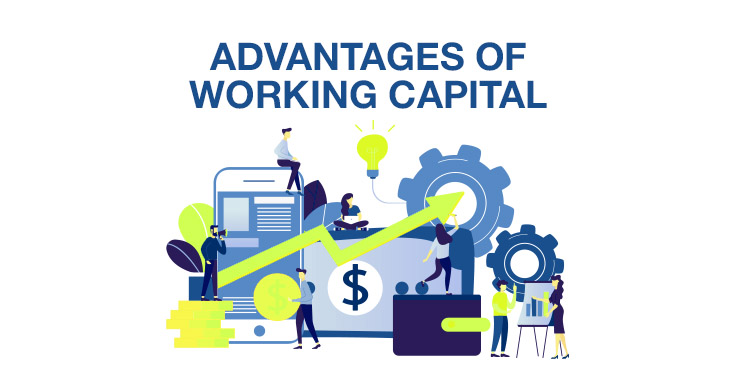The Indian Union Budget 2024 has brought significant changes for Micro, Small, and Medium enterprises (MSMEs), focussing on increasing their financial accessibility and operational flexibility. One of the key reforms is the reduction in the turnover threshold for mandatory onboarding on the Trade Receivables Discounting System (TReDS) platform. This change lowers the requirement from ₹500 crore to ₹250 crore, allowing more businesses to participate in this digital invoice discounting system.
Expanding TReDS participation
The TReDS platform plays a crucial role for MSMEs as it facilitates easier access to working capital by enabling businesses to convert their trade receivables into cash without needing collateral. With the reduced turnover threshold, an estimated 7,000 additional companies and 22 public sector undertakings (PSUs) can now join the platform. This broader participation is expected to enhance liquidity for MSMEs and streamline cash flow management.
Benefits of the revised threshold
By lowering the threshold, the government aims to foster a more inclusive financial environment for smaller enterprises. This initiative will not only help MSMEs improve their cash flow but also reduce the financial burden of high-interest loans. Enhanced participation on the TReDS platform means that more businesses can secure timely payments, leading to better financial health and operational efficiency.
The impact of these changes is expected to extend beyond immediate financial relief. By facilitating smoother cash flow and more predictable payment cycles, MSMEs can plan and execute business strategies more effectively, contributing to overall economic resilience and growth. This shift aligns with the government’s broader objectives to enhance the operational landscape for MSMEs, which are vital to India’s economic ecosystem.
Complementary financial measures
The Union Budget also includes several other measures to support MSMEs. A new credit guarantee scheme has been proposed to help manufacturing MSMEs secure loans for equipment and machinery. This scheme is designed to reduce financial barriers and encourage investment, potentially driving growth in the sector.
Additionally, the budget has increased the Mudra loan limit from ₹10 lakh to ₹20 lakh under the ‘Tarun’ category, providing more substantial support for businesses looking to expand or undertake larger projects. This initiative rewards responsible borrowers and encourages financial discipline while supporting business growth.
Modernising credit assessment
To further support MSMEs, the budget introduces modern methods for credit assessment. Public sector banks will now use digital footprint scoring to evaluate MSME creditworthiness, moving away from traditional external evaluations. This change is expected to make it easier for a wider range of MSMEs to access credit, particularly those lacking formal accounting systems.
Enhancing digital infrastructure
The government has also emphasised enhancing digital infrastructure to support MSMEs. By investing in technology and digital tools, the government aims to create a more robust and resilient business environment. This includes initiatives to promote digital literacy among small business owners and integrate digital solutions into their operations.
Frequently Asked Questions (FAQs)
Q1. What is TReDS?
Ans: Trade Receivables Discounting System (TReDS) is an electronic platform that enables the financing or discounting of trade receivables for micro, small and medium enterprises (MSMEs) through various financiers. These receivables are owed by corporates, government departments, and public sector undertakings (PSUs), providing MSMEs with quick access to funds and improving their cash flow.
Q2. What is the TReDS platform?
Ans: TReDS is an online platform that facilitates the discounting of trade receivables. It connects sellers (MSMEs) with buyers and financiers, allowing sellers to get immediate cash flow by discounting their unpaid invoices at a discounted rate. This helps MSMEs improve their cash flow and working capital.
Q3. Which platform is RBI-approved for TReDS?
Ans: M1xchange, the first trade receivable exchange in India, is the RBI-approved platform for TReDS in India. It provides a secure and efficient platform for MSMEs to sell their invoices to large corporates and financial institutions. By leveraging M1xchange, MSMEs can quickly convert their unpaid invoices into cash, improving their cash flow and working capital.
Q4. What are the benefits of TReDS registration?
Ans: Some of the benefits of TReDS registration are:
- Faster payments: Reduce invoice payment cycles
- Enhanced cash flow: Improve working capital management
- Reduced paperwork: Streamline invoicing and reconciliation processes
- Improved creditworthiness: Build a positive credit history
- Increased efficiency: Benefit from a digital platform for invoice discounting
- Access to finance: Gain access to working capital loans and funding options
- Reduced risk: Mitigate credit risk through factoring and discounting
- Compliance: Adhere to government regulations and standards
Q5. What is the budget announced for 2024?
Ans: The Union Budget 2024, presented by the Finance Minister, Smt. Nirmala Sitharaman, focusses on infrastructure, green energy, and digital innovation. Key highlights include:
- Mandatory TReDS onboarding for corporates with turnover 250+ crores
- 7000 corporate & 22 PSUs will be included under TReDS purview with this.
- ₹10 lakh crore for capital expenditure
- Increased allocations for health and education
- Continued support for the PM Gati Shakti programme
- The fiscal deficit target is set at 5.9% of GDP
Q6. What are MSMEs?
Ans: Micro, small and medium enterprises (MSMEs) are businesses categorised based on their investment in plant, machinery, or equipment and annual turnover. They play a crucial role in economic growth by promoting innovation, creating jobs, and contributing to exports. In India, MSMEs are defined under the MSMED Act, 2006, and are vital for industrialisation and socioeconomic development.
Q7. What about MSME in budget 2024?
Ans: The Union Budget 2024 introduced several measures to support MSMEs. Key highlights include:
- Credit guarantee scheme: Providing term loans for machinery and equipment without collateral.
- Increased Mudra loan limit: Offering higher loan amounts to borrowers.
- Lowered turnover threshold for corporates: Enabling more MSMEs to participate in the TReDS.
- Government-backed guarantees: Ensuring uninterrupted credit flow to stressed businesses.
Overall, the budget aims to boost MSME growth, enhance access to finance, and create more jobs.
Q8. How does the TReDS platform benefit MSME buyers under the new budget?
Ans: The TReDS platform benefits MSME buyers under the new budget by:
- Reducing their financial burden: By enabling faster payment to suppliers, MSMEs can improve their cash flow and reduce the need for short-term loans.
- Improving relationships with buyer: Timely payments can strengthen relationships with buyers, leading to better terms and more reliable supply chains.
- Enhancing financial discipline: Using TReDS can promote better financial management practices among MSMEs.
- Expanding access to financing: TReDS can help MSMEs access more affordable financing options.
Q9. What is in TReDS for MSME?
Ans: M1xchange TReDS is a platform licensed by RBI specifically keeping MSMEs in mind. Through M1xchange TReDS, MSMEs can sell their invoices (bills for goods or services) to banks and financial institutions at a discounted rate, getting instant cash flow. This helps MSMEs improve their working capital and manage their finances more efficiently.
Conclusion
https://pib.gov.in/PressReleaseIframePage.aspx?PRID=2035609
https://www.hdfcbank.com/personal/resources/learning-centre/union-budget/key-highlights-for-msme-in-union-budget-2024
Tags: TReDS Budget 2024 Last modified: September 16, 2024














